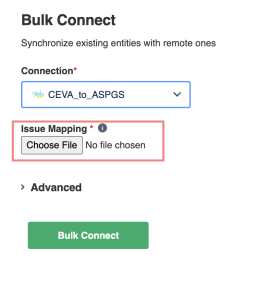Answer by Maximillian Thomas Nadolny on 22 October 2021
Hi Hi don’t know if I understood your question correctly, and I’m also a user but in general you can assign the remote issue key as follows.
Outgoing on the remote side (but this is in the standard script if not changed)
replica.key = issue.key
Incoming you can just do this
issue.“YourCustomField” = replica.key (for simple custom field → String)
there also is the option to do
issue.customFields.“YourCustomField” = replica.key (but doesn’t sound like you need that)
This will be executed with each sync but only be applied if there is a change if I understand correctly
If you are then using the custom field to do something else it shouldn’t be affected since there is no change
Cheers
Max
Comments:
Marianne Lee commented on 25 October 2021
Hi Max,
Thanks for your suggestion, and you’re right in that the issue.customFields.“YourCustomField” will be updated with replica.key with each sync, i.e. with each change.
This solves part of the problem. The other part getting the remote issue keys for completed/old issues which no longer get new changes. I do not want to initiate an update (add a comment, etc.) as that would modify the issue update date, which then would not be reflected correctly.
Any ideas on how to tackle that?
Thanks,
Marianne
Francis Martens (Exalate) commented on 26 October 2021
Hi Marianne Lee, Maximillian Thomas Nadolny
You are both on the right track.
The bulk exalate will only message the twins whenever the replica is changed.
If the replica is the same since previous message, nothing will happen.
By adding something like
replica.foo = new Date()
To the outgoing sync, a message will also be sent.
Knowing this you can
- Adapt the outgoing sync
- Perform a bulk exalate on all previously synced issues (ie by using a JQL which covers everything)
- Remove the foo statement from the outgoing sync
Also note that if you have the connection JiraA to JIraB, and you want to have the JiraB key on the JiraA issues, you will need to adapt the outgoing sync on JiraB and run the bulk exalate on JiraB.
Give it a try and let us know
Kiet Ngo commented on 29 October 2021
Hi Francis Martens (Exalate) ,
Thanks for your response.
I have the same issue with Marianne Lee , was following this thread. I want to perform bulk exalate changes but don’t know how to get the csv file input here. I have few thousands of issues. What is the best way to do it?

Francis Martens (Exalate) commented on 29 October 2021
The screenshot you provided is of the ‘Bulk Connect’, which is a different feature than the Bulk Exalate
Check Bulk Exalate for more details
